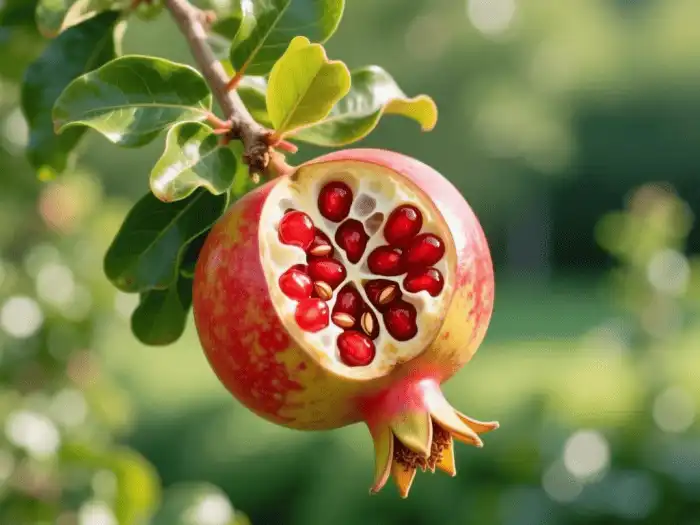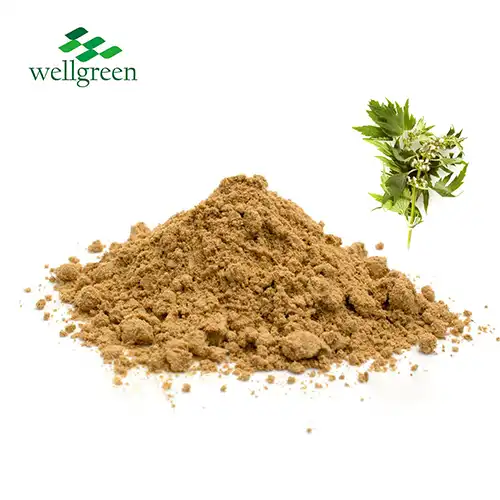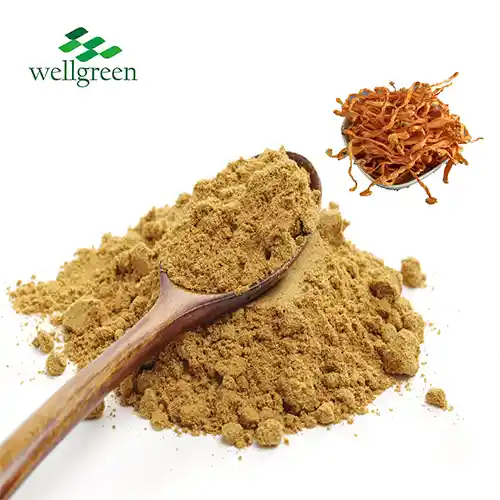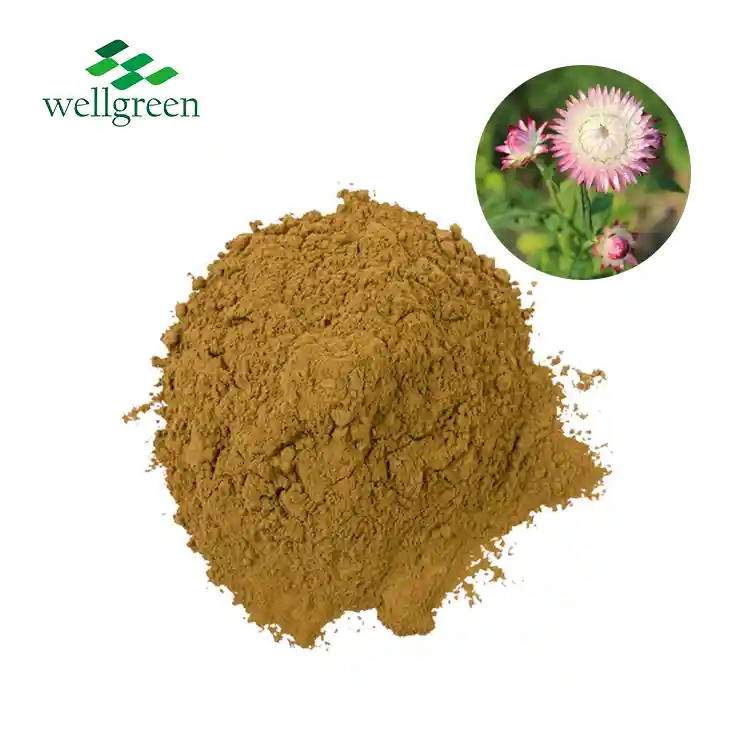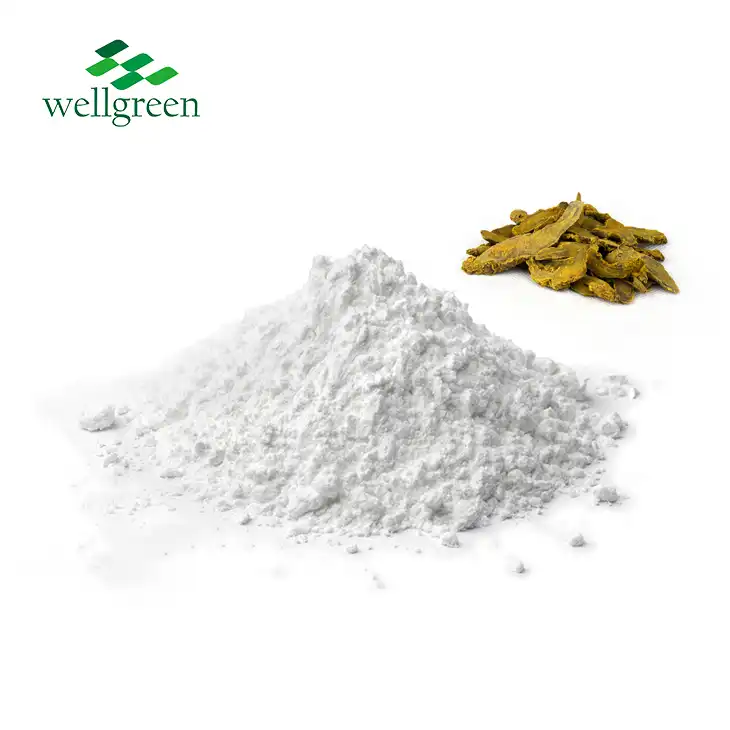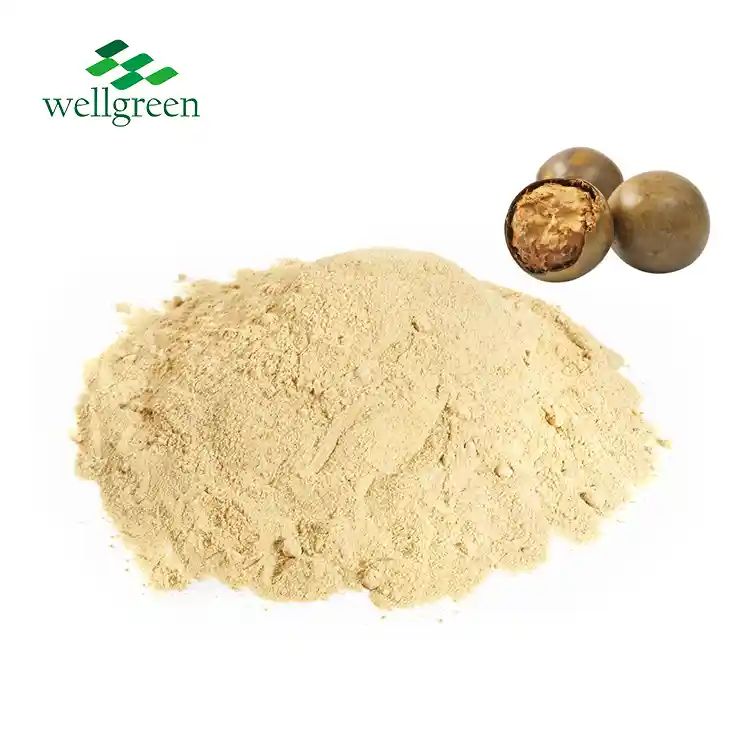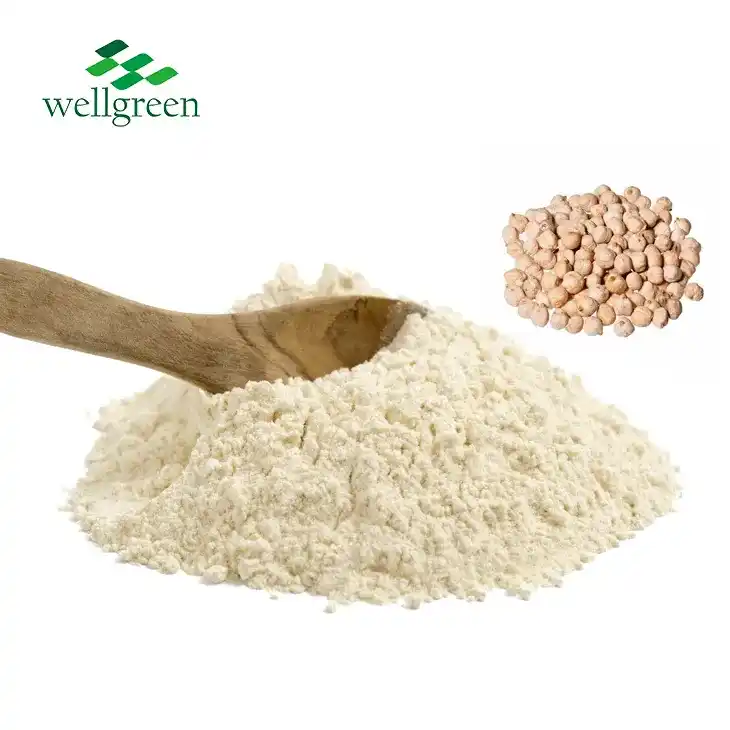Pomegranate Fruit Powder: Everything You Should Know
2025-11-05 13:34:37
Pomegranate fruit powder is a versatile and nutrient-dense product derived from the vibrant, antioxidant-rich pomegranate fruit. This concentrated powder form captures the essence of pomegranates, offering a convenient way to harness their health benefits. From its composition and production methods to its wide-ranging applications in food, beverages, and supplements, pomegranate fruit powder has gained popularity among health-conscious consumers and food manufacturers alike. In this comprehensive guide, we'll explore the intricate details of this remarkable superfood, including its nutritional profile, production standards, and innovative uses across various industries.
Composition, Nutrients, and Phytochemicals
Macronutrient Profile
Pomegranate fruit powder boasts a unique macronutrient composition that contributes to its nutritional value. The powder typically contains a balanced mix of carbohydrates, dietary fiber, and small amounts of protein. Its low-fat content makes it an attractive option for those monitoring their calorie intake. The carbohydrates present in pomegranate powder primarily consist of natural sugars, which provide a quick energy boost when consumed.
Micronutrient Abundance
One of the standout features of pomegranate fruit powder is its rich micronutrient profile. It serves as an excellent source of vitamin C, an essential antioxidant that supports immune function and collagen synthesis. Additionally, the powder contains significant amounts of vitamin K, crucial for blood clotting and bone health. Folate, a B-vitamin important for cellular function and DNA synthesis, is also present in appreciable quantities. Mineral content includes potassium, which aids in maintaining proper heart and muscle function, as well as trace amounts of calcium, iron, and magnesium.
Powerful Phytochemicals
The true power of pomegranate fruit powder lies in its impressive array of phytochemicals. Polyphenols, particularly ellagitannins and anthocyanins, are abundant in the powder and contribute to its potent antioxidant properties. Punicalagins, a type of ellagitannin unique to pomegranates, are responsible for much of the fruit's antioxidant activity. These compounds have been linked to various health benefits, including reduced inflammation and improved cardiovascular health. The powder also contains ellagic acid, a polyphenol with potential anti-cancer properties. Flavonoids, another class of phytochemicals present in pomegranate powder, further enhance its antioxidant capacity and may offer neuroprotective effects.
Production Methods and Quality Standards
Harvesting and Processing Techniques
The journey from fresh pomegranate to organic pomegranate fruit powder begins with careful harvesting practices. Ripe pomegranates are hand-picked to ensure optimal quality and flavor. The arils, or seed casings, are then separated from the fruit's pith and outer skin. These arils undergo a gentle juicing process to extract the nutrient-rich liquid. The resulting juice is then subjected to various drying methods, with freeze-drying emerging as a preferred technique due to its ability to preserve the nutritional integrity of the product.
Drying and Milling Processes
Freeze-drying, also known as lyophilization, involves freezing the pomegranate juice and then removing the ice through sublimation. This process allows for the retention of heat-sensitive nutrients and phytochemicals that might otherwise be degraded during conventional drying methods. Once dried, the pomegranate material is finely milled to create a uniform powder. Some manufacturers may employ spray-drying techniques, which involve atomizing the juice into fine droplets and rapidly drying them in hot air. Regardless of the method used, strict temperature controls are maintained to preserve the powder's nutritional value.
Quality Control and Certification
Reputable producers of pomegranate juice powder adhere to rigorous quality control measures throughout the production process. This includes regular testing for contaminants, microbial analysis, and verification of nutritional content. Many manufacturers seek organic certification to ensure their products meet stringent standards for pesticide-free cultivation and processing. Additionally, Good Manufacturing Practice (GMP) certifications are often obtained to demonstrate compliance with quality and safety regulations. Some producers may also pursue kosher or halal certifications to cater to specific dietary requirements. These quality standards not only ensure product safety but also contribute to the overall efficacy and consistency of pomegranate fruit powder.
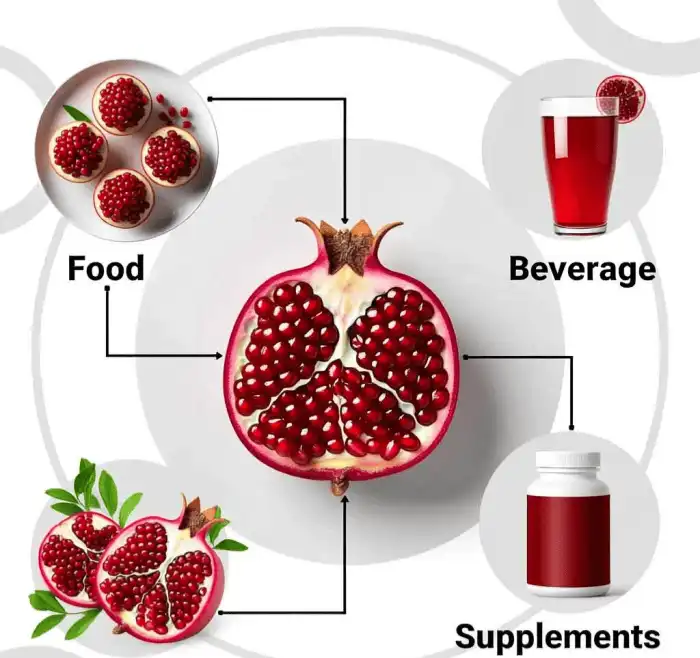
Applications in Food, Beverage, and Supplements
Culinary Innovations
Pomegranate powder has found its way into countless culinary applications, offering a convenient alternative to fresh pomegranates while imparting a burst of flavor and nutrition. Bakers incorporate the powder into bread, muffins, and pastries to add a subtle fruity note and vibrant pink hue. In savory dishes, it serves as a unique seasoning for marinades, rubs, and dressings, particularly in Middle Eastern and Mediterranean cuisines. The powder's solubility makes it an excellent addition to smoothie bowls, yogurt parfaits, and breakfast cereals, providing a quick antioxidant boost to start the day.
Beverage Industry Integration
The beverage industry has embraced pomegranate powder as a versatile ingredient in both hot and cold drinks. It dissolves easily in water, making it perfect for instant pomegranate juice reconstitution. Mixologists utilize the powder in crafting innovative cocktails and mocktails, appreciating its ability to add depth and complexity to their creations. In the functional beverage sector, pomegranate powder features prominently in pre-workout formulations and energy drinks, capitalizing on its natural sugar content and potential performance-enhancing properties. Tea manufacturers have also begun incorporating the powder into herbal blends, offering consumers a convenient way to enjoy the benefits of pomegranate in their daily cuppa.
Nutraceutical and Supplement Formulations
The nutraceutical industry has recognized the potential of pomegranate powder as a potent supplement ingredient. Encapsulated forms of the powder are marketed as antioxidant supplements, often combined with other superfruits or botanical extracts for synergistic effects. Some manufacturers have developed effervescent tablets or dissolvable powders that offer a convenient way to consume pomegranate extract on the go. In the realm of sports nutrition, pomegranate powder is being investigated for its potential to enhance exercise recovery and reduce muscle soreness, leading to its inclusion in post-workout supplement blends. As research continues to uncover new health benefits associated with pomegranate consumption, the applications of pomegranate powder in the supplement industry are likely to expand further.
Conclusion
Organic pomegranate fruit powder and pomegranate fruit powder stand as a testament to nature's ability to provide powerful nutrition in a convenient form. Its rich composition of nutrients and phytochemicals, coupled with versatile applications across food, beverage, and supplement industries, makes it a valuable ingredient for both consumers and manufacturers. As production methods continue to evolve and quality standards remain rigorous, pomegranate powder is poised to maintain its status as a superfood staple in the health and wellness landscape.
Contact Us
Are you interested in incorporating high-quality pomegranate fruit powder into your products? Wellgreen Technology is a leading manufacturer and supplier of premium plant extracts and natural organic powders. Contact us at wgt@allwellcn.com to learn more about our pomegranate powder offerings and how we can support your business needs with our GMP-certified production facilities and comprehensive quality assurance measures.
References
1. Johnson, E.T. (2019). "Pomegranate: A Comprehensive Review on Processing, Phytochemistry, and Health Benefits." Advances in Food and Nutrition Research, 82, 229-271.
2. Sharma, P., & McClees, S.F. (2020). "Pomegranate as a Functional Food and Nutraceutical Source: A Review." Journal of Food Science and Technology, 57(4), 1239-1252.
3. Viuda-Martos, M., et al. (2018). "Pomegranate and Its Many Functional Components as Related to Human Health: A Review." Comprehensive Reviews in Food Science and Food Safety, 17(6), 1415-1436.
4. Kandylis, P., & Kokkinomagoulos, E. (2020). "Food Applications and Potential Health Benefits of Pomegranate and Its Derivatives." Foods, 9(2), 122.
5. Turrini, E., et al. (2019). "Pomegranate Juice and Extract Administration Increase the Antioxidant Capacity in the Heart and Liver of Obese Zucker Rats." International Journal of Molecular Sciences, 20(5), 1242.
6. González-Molina, E., et al. (2018). "Pomegranate Varietal Wines: Phytochemical Composition and Quality Parameters." Food Chemistry, 239, 1146-1152.

